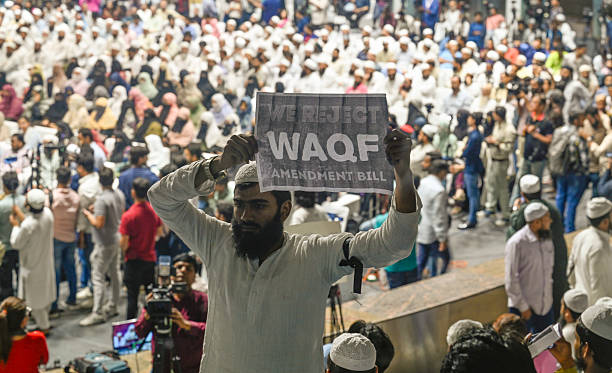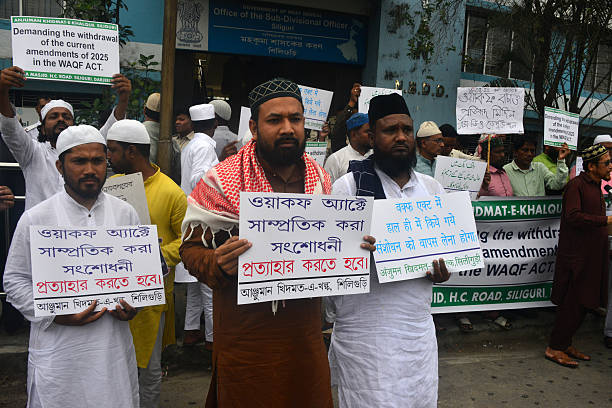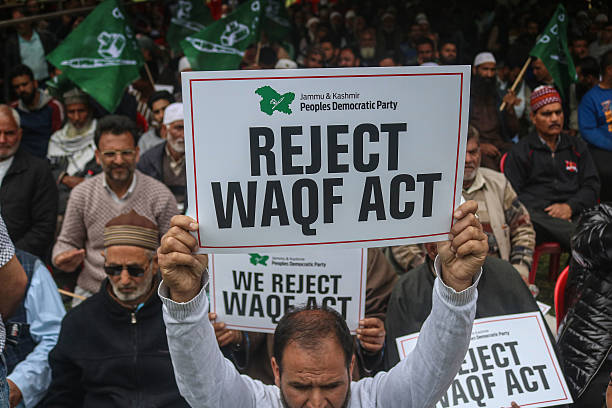Waqf Act 2025 has become the centre of a major legal battle in India after the country’s Supreme Court suspended several key provisions of the law that govern Muslim-donated properties. The decision is being hailed as a crucial moment for India’s 200 million Muslims, who consider waqf lands a cornerstone of their community life.
The Waqf (Amendment) Act 2025, passed earlier this year, had sought to overhaul how waqf properties are identified, recorded, and managed. While the government argued that the changes would bring transparency and reduce disputes, Muslim groups and opposition parties claimed that the amendments infringed on their constitutional and religious rights.
What Is Waqf and Why It Matters
In Islamic tradition, a waqf is a charitable endowment where property or land is donated for religious or community purposes. These properties can include mosques, madrassas (religious schools), graveyards, orphanages, and other social welfare institutions. Crucially, waqf properties cannot be sold or diverted to other purposes.
India is home to one of the world’s largest waqf estates, with assets valued in billions of dollars. The Waqf Act of 1995 established a system of state-level waqf boards and a central council to manage these properties. The boards include representatives from the Muslim community, state governments, Islamic scholars, and legal professionals.
Key Changes Under Waqf Act 2025
The Waqf Act 2025 introduced several controversial changes. Among them:
- Government’s Authority on Disputed Properties: The new law allowed the government to decide whether a disputed property qualified as waqf, bypassing judicial review.
- Documented Proof for Waqf Claims: Waqf boards were required to produce valid documentation to establish a property as waqf, even if it had been used for religious purposes for generations.
- Eligibility of Donors: The Act required that any donor must have been a practising Muslim for at least five years before their donation could be considered valid under waqf.
- Inclusion of Non-Muslims in Waqf Boards: The law expanded the scope for nominating non-Muslims to waqf boards, sparking debate over representation.
These changes triggered widespread protests from Muslim organizations, who argued that they undermined centuries-old traditions and shifted power away from the community to the state.
Supreme Court’s Ruling on Waqf Act 2025
On Monday, a bench led by Chief Justice BR Gavai and Justice AG Masih delivered a significant interim order. The judges refused to strike down the entire law, calling such a move a “rarest of rare” scenario. However, they suspended some of its most contentious provisions.
Government’s Role in Property Decisions Suspended
The court struck down the rule that gave the government the final say on whether a property is waqf or not. The bench stated that this violated the principle of separation of powers, as only the judiciary can determine the rights of citizens in such disputes.
Donor Eligibility Clause Scrapped
The clause requiring waqf donors to be practising Muslims for at least five years was also removed, as the court held that it placed unreasonable restrictions on religious donations.
Representation of Non-Muslims Limited
While the court did not stay the provision allowing non-Muslims to serve on waqf boards, it imposed limits — capping their presence at four members in the 22-member federal board and three members in the 11-member state boards. The judges also directed that efforts should be made to appoint chief executive officers from within the Muslim community.
Muslim Community Reactions
The Supreme Court’s intervention has been welcomed by many Muslim groups who saw the Waqf Act 2025 as an overreach by the government. Leaders have called the ruling a victory for constitutional rights and community autonomy.

Legal experts also view the suspension as a reaffirmation of judicial oversight. By blocking executive control over property disputes, the court has reinforced the principle that citizens’ rights cannot be determined solely by government order.
Government’s Position
The BJP-led government has maintained that the amendments were necessary to prevent misuse of waqf lands and to bring transparency to their administration. Officials argue that many waqf properties have been mired in disputes and mismanagement for decades, and that clearer rules would ultimately benefit the community.
However, critics say that the government’s direct involvement in determining waqf status could lead to bias, especially in politically sensitive cases.

Wider Implications of the Ruling
The suspension of key provisions in the Waqf Act 2025 could have major implications for property law, minority rights, and religious freedom in India. It signals that while Parliament has the power to legislate, such laws must still conform to constitutional principles such as equality before law and separation of powers.
For the Muslim community, the ruling provides temporary relief and a chance to safeguard properties that have been used for generations. For the government, it means that its reforms will need to withstand closer judicial scrutiny in the months ahead.
The Road Ahead
The case is still ongoing, and the Supreme Court will continue to hear arguments before delivering a final verdict. In the meantime, waqf boards will retain their authority to manage properties, and disputed cases will remain under judicial review rather than government control.
Legal analysts predict that this case could set an important precedent for how religious and charitable properties are governed in India. It may also influence debates over other laws affecting minority communities.
Conclusion
The Supreme Court’s order on the Waqf Act 2025 represents a critical balancing act — preserving transparency and accountability in waqf management while protecting the constitutional rights of Muslims. As the case proceeds, the verdict will be closely watched not just by India’s Muslim community, but by all those concerned about the country’s approach to religious freedom and minority rights.
Source: BBC News



